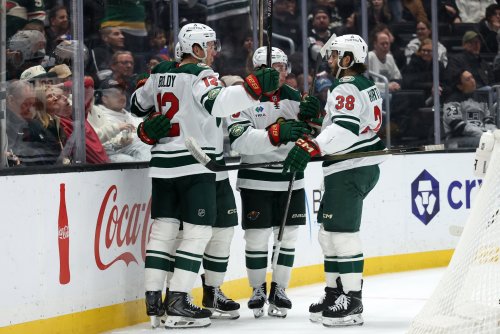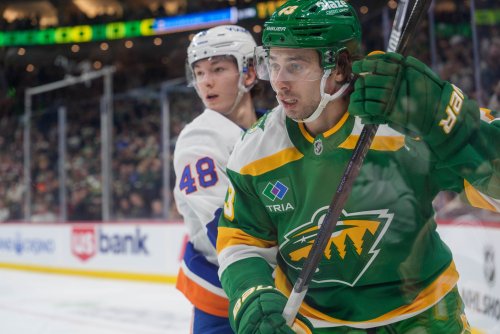
Yes, it appeared grisly at the time. No one wants to see a player suffer traumatic brain injury in front of their eyes. However, Crawford was fine, even after the puck initially made contact with his mask. Why? Goalie masks are designed to protect from exactly that kind of thing - a puck to the head.
Goalie masks have come a long way from the crude fiberglass design that Jacques Plante first sported in 1959. They no longer just protect a goalie's face from deep gashes that required double-digit stiches and broken facial bones. Years and years of research has gone into the latest designs of hockey goalie masks. The fiberglass, carbon fiber, and Kevlar construction keeps the masks extremely durable and lightweight for use in the high speeds of hockey. When a puck makes contact with the face of the mask, the energy is dissipated throughout the one-piece construction of the mask, dispersing the force over a much larger area around the skull of the goalie. The force does not travel into the head, but is rather deflected around the head, saving the goalie from a concussion.
The whole head designs have revolutionized the way the position is played. Before, goalies were forced to stand up to make saves in an attempt to keep their faces safe. Since the new designs have come out, the butterfly style of goaltending has become the most prominent technique for stopping pucks. It has allowed goalies to drop to their knees, almost eye-level with the puck, to make a save. It has made goalies tougher to beat as they can now take away almost the entire lower half of the net, while using the biggest part of their bodies - the torso - take absorb the shot.
Now that is not to say that taking a puck to the mask is fun, enjoyable, or no big deal. In fact, it still can hurt like hell. The mask still reacts to the force of the impact because, you know, physics. It can force the lower jaw backward slightly which causes your ears to pop. That force does shake you up, causes your ears to ring, and even some slight disorientation, but a concussion it is not. This is appears to be what Crawford was experiencing. He seemed to shake off the shot and appeared no worse for the wear after the commercial break.
So while the outrage was in full force on Twitter, and the bashing of the NHL from casual fans about not having Crawford head to the quiet room for concussion screening, I was taking solace in the fact the the mask did exactly what it was designed to do.
Think you could write a story like this? Hockey Wilderness wants you to develop your voice, find an audience, and we'll pay you to do it. Just fill out this form.







Recommended Comments
There are no comments to display.
Join the conversation
You can post now and register later. If you have an account, sign in now to post with your account.
Note: Your post will require moderator approval before it will be visible.